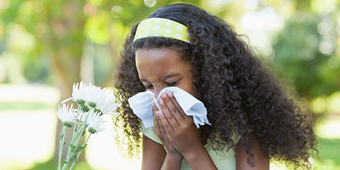Not Always the Most Wonderful Time Of the Year

Find Your Perfect Match
Answer a few questions and we'll provide you with a list of primary care providers that best fit your needs.
You don’t have to be diagnosed with depression or another mental health disorder to feel anxious and stressed during the holidays. Expectations run high this time of year, and memories run deep. Nurse practitioner Melissa Benham, FNP, says tension, strained relationships, financial difficulties, isolation, and grief all can take their toll. She offers advice to get you past the all-too-common struggles.
Be insightful. “Take some time to consider your mental health right now,” advises Benham. Ask yourself: “Am I in an OK place right now? Or could I potentially go into a darker place?” Pausing for some insight into your current situation will prepare you for what’s ahead.
Look for signs. It’s not unusual to feel a little down during the holidays. Especially if you’ve lost a loved one or experienced a crisis this past year. Depression can leave you preferring to be alone, or avoiding things you usually enjoy. “If you love to paint but can’t get yourself motivated, or you like to exercise but can’t get out bed, these could be signs of depression,” Benham explains.
Establish boundaries. It’s OK to say no, Benham reminds us. “If you’re faced with a situation that you think will disturb your emotional peace, politely decline the invitation.” Don’t overschedule, overstress, or overdo it, she says. It’s perfectly OK to set boundaries that will put you in a better place emotionally and help you better enjoy the holiday season.
Know your coping mechanisms. Decide ahead of time how you’ll cope if you become overwhelmed. “Go into the holiday season knowing your limits and what you’ll do if you reach your threshold,” says Benham. Maybe it’s hiking, music, hobbies, or planning special ‘me’ time. “Or would it make you feel better to organize a closet?” asks Benham. “Or gather some things you no longer need for donation? Some people cope with stress by volunteering their time to help others.”
Take your meds. If you’ve been prescribed medications for whatever reason, continue taking them as prescribed. “A follow-up session with your doctor may be needed to determine if your medication is still appropriate, or if the dosage should be adjusted,” says Benham. “Talk to your doctor if you think medication will help you overcome the holiday blues.”
Reach out for help. Everyone has a certain degree of worry or sadness in their life. But when it invades your ability to get through the day, or to do your job, or it affects your relationships, reach out for help. Benham suggests asking yourself ‘Is this worse than normal?’ If the answer is ‘yes’, ask for help.
During her 10 years as an emergency department nurse, Benham witnessed an increase in suicidal tendencies and suicide attempts during the holidays. “Grief or depression brings some people to a new level of hopelessness and helplessness,” she says. “It’s just so important to reach out to your support networks, or your doctor. Even if it’s at night or the weekend or the actual holiday, you can contact CrisisCare at (937) 224-4646, or call 911, or get to the emergency department. Professionals are ready to help 365 days, 24 hours a day.”
Find Your Perfect Match
Answer a few questions and we'll provide you with a list of primary care providers that best fit your needs.
Source: Melissa Benham, FNP, Springboro Family Medicine





